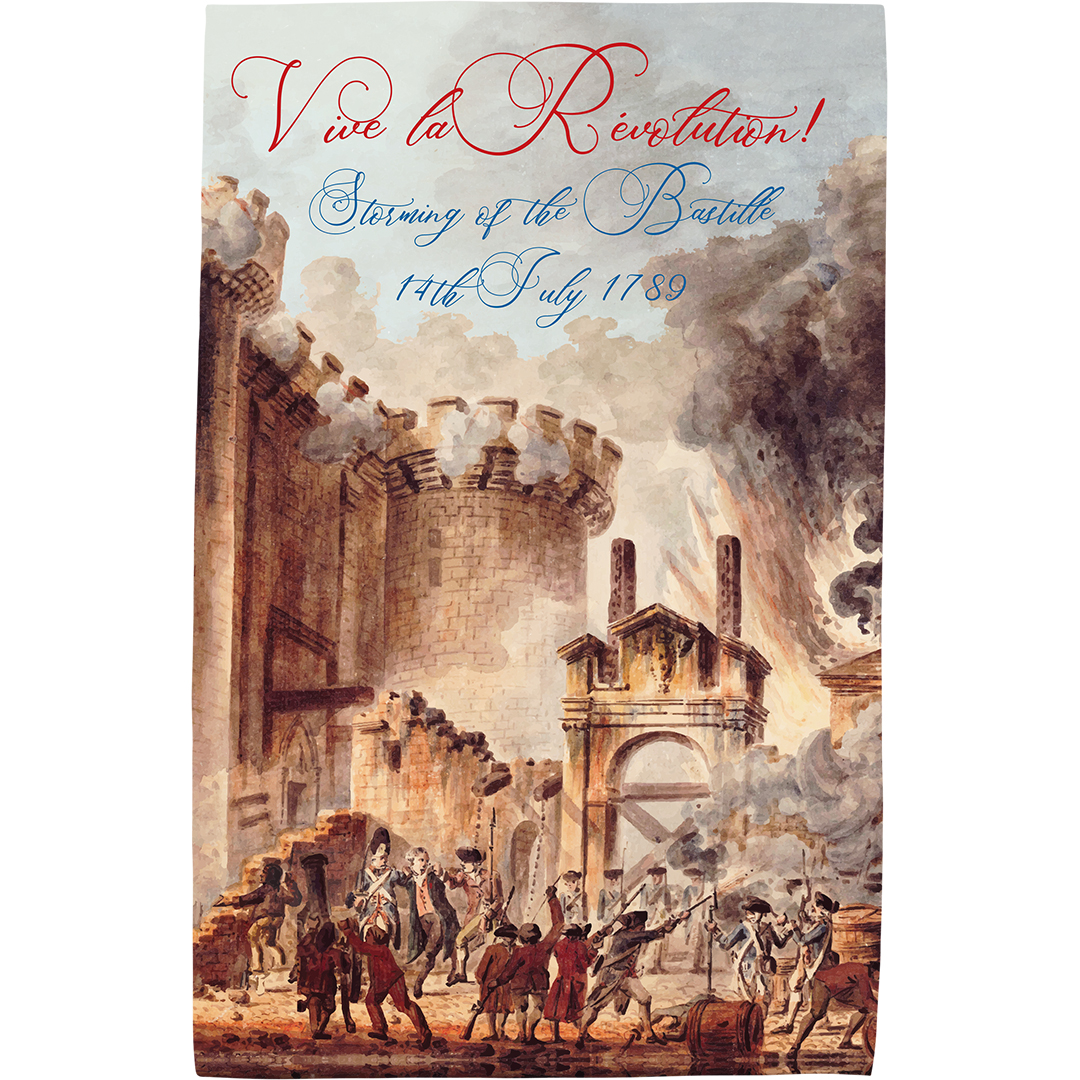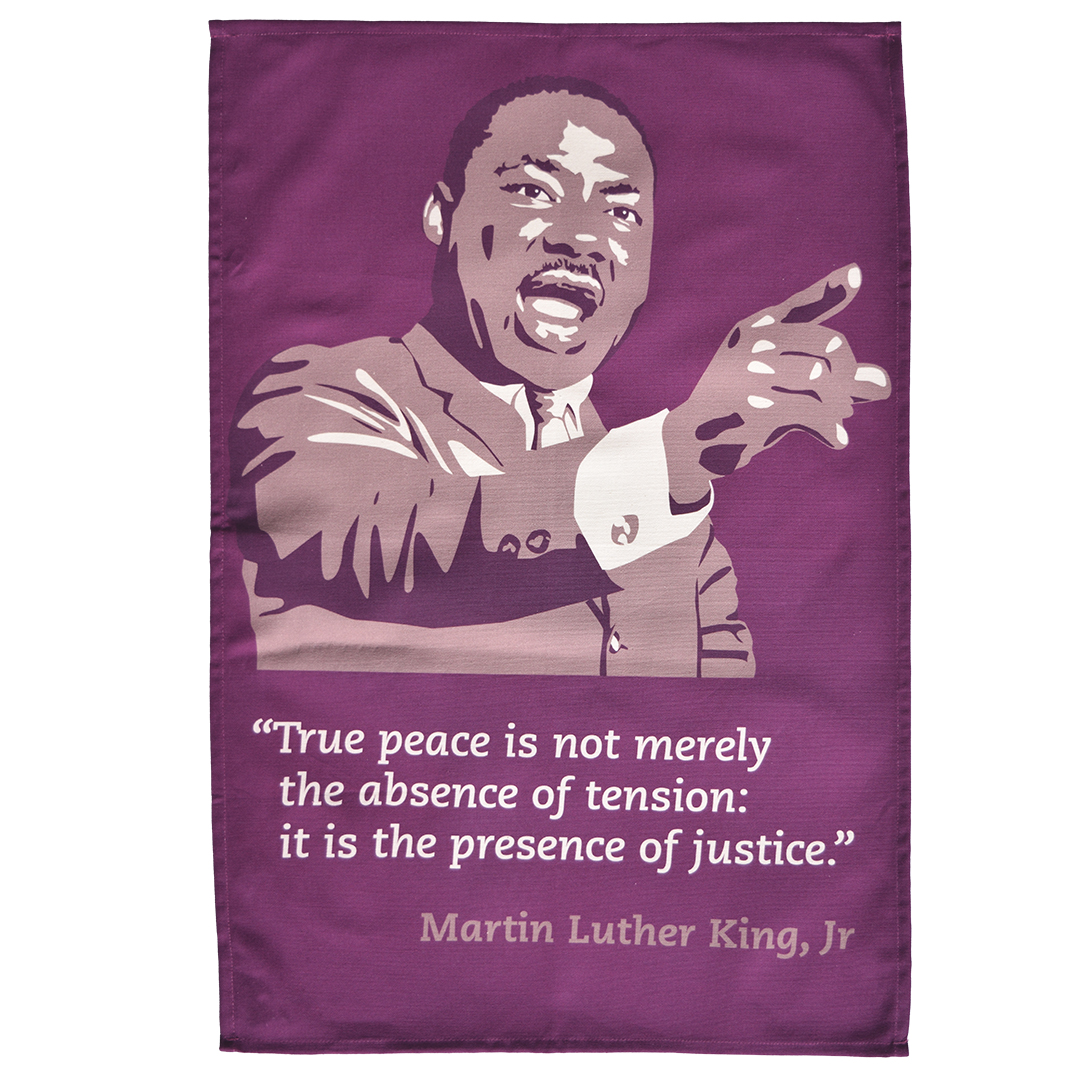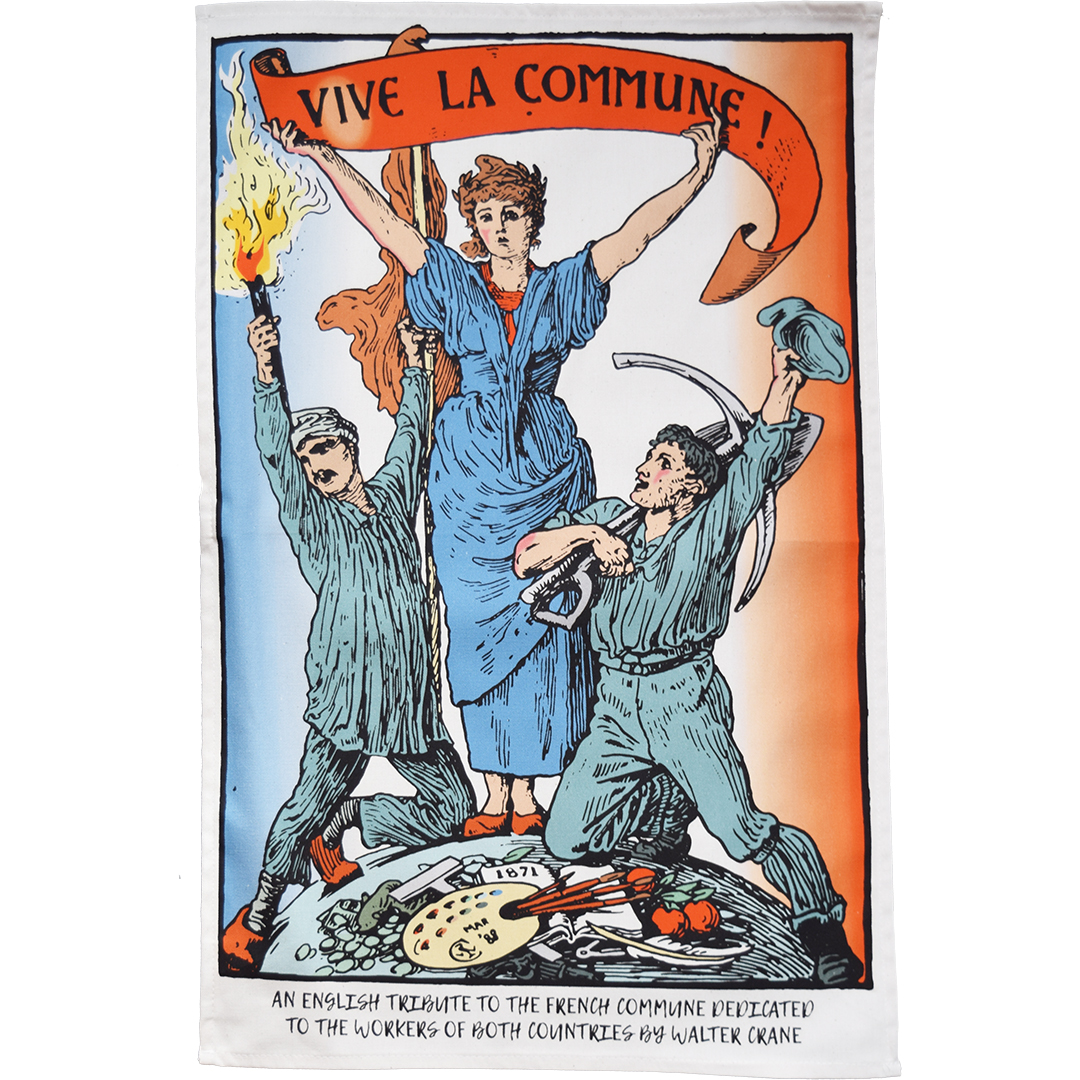Forbidden to Forbid: The May 1968 Protests in France
Posted by Pete on 13th May 2022
The story of how student protests led France to the brink of full-scale revolution...
Students of radical history always end up at the same question: why is it always Paris?
Since the late eighteenth century, the city has been the nerve centre of countless revolutions and revolutionary struggles, from the Storming of the Bastille through to the Paris Commune of 1871.
And in May 1968, Paris stepped up again.
The Storming of the Bastille remains a symbolic moment in the history of French radicalism
Click to view our Storming of the Bastille tea towel
The late-1960s were a time of global ferment.
The Vietnamese people were fighting off U.S. invasion at the same time as the civil rights movement advanced in America itself.
Anticolonial guerrillas struggled against the Portuguese empire in Africa while citizens in the Communist Bloc in Europe began to speak out against bureaucratic dictatorship.
The atmosphere of resistance spread, and 1968 was the year when everything reached fever pitch.
The Prague Spring began on 5 January, shortly followed by the Tet Offensive against U.S. forces in Vietnam. In April, Martin Luther King Jr. was assassinated in Memphis, sparking a wave of racial justice protests across America.
Paris, never one to miss a revolution, rose up too.
The assassination of MLK in 1968 sparked a wave of protests across the United States
Click to view our Martin Luther King tea towel
In 1968, France was on its fifth republic since 1789, steered by the (very) old hand of Charles de Gaulle. Brought to power in 1959, his conservative rule during the 1960s was resented by French students.
They wanted a freer and more equal society. Dominant social norms were too restrictive, patriarchal, and homophobic, and young people were ready to fight back.
A radical generation of French students was primed to explode against this system, and the fuse was lit on the 2nd of May, 1968.
On the 2nd of May, students at Paris Nanterre University were shut out by their administration for demanding reform of the very conservative and top-down university system.
Four days later, there was a mass solidarity march of 20,000 students through Paris. They were brutally assaulted by police, with TV cameras watching every step of the way.
De Gaulle’s government thought it was nothing to worry about: just a bunch of whingeing kids.
But on 13 May – 54 years ago today – France’s biggest trade unions held a general strike in solidarity with the aggrieved students. The the French economy went into shut-down mode.
France had (and still has) a formidable tradition of organised labour and socialist politics. With the general strike, there was now a genuine prospect of revolution.
Georges Pompidou, the Prime Minister, personally announced that the students who had been arrested would be released from prison.
But that wasn’t enough: protests had spread across the country, and they weren't stopping any time soon.
The protests of May 1968 echoed the hopes and dreams of the Paris Commune almost a hundred years earlier
Click to view our Paris Commune tea towel
By 28 May, it was clear that de Gaulle had lost control. Opposition political leaders declared themselves ready to form a new government.
On 29 May, de Gaulle fled the country. Ominously, he went to the HQ of the French Army stationed in Germany alongside its NATO allies. The President was confirming he had the support of the military, but to what end?
The next day, almost half a million workers marched through Paris chanting “Adieu, de Gaulle!”
Meanwhile, Pompidou had tanks ordered to the suburbs of the city in case it would need to be ‘reconquered.’
But before the tanks could roll into the city, the tide turned and de Gaulle returned to Paris. On the 30th of May, he called a general election.
At the same time, major concessions were made to the French labour movement, undermining its alliance with the students.
On 23 June, the Gaullists won a huge majority in the National Assembly. The government was secure again.
Like the Revolutions of 1848, 1968 was full of false dawns.
The Tet Offensive failed to dislodge U.S. forces in Vietnam, and a Soviet invasion effectively repressed the Prague Spring.
In Paris, meanwhile, the promise of a new France - built on an alliance of radical workers and students - soon fizzled out.
But some effects work more slowly than others. The Tet offensive may not have been a success, but the U.S. invasion of Vietnam ultimately failed. And Moscow’s repudiation of the Prague Spring all but guaranteed the collapse of the Soviet Union some years later.
De Gaulle may have been re-elected, but the May uprising transformed French culture and society.
The ‘68ers’ demanded a freer culture, and that was what they got. Their slogan, It is forbidden to forbid, still echoes today in the corridors of radical history.



